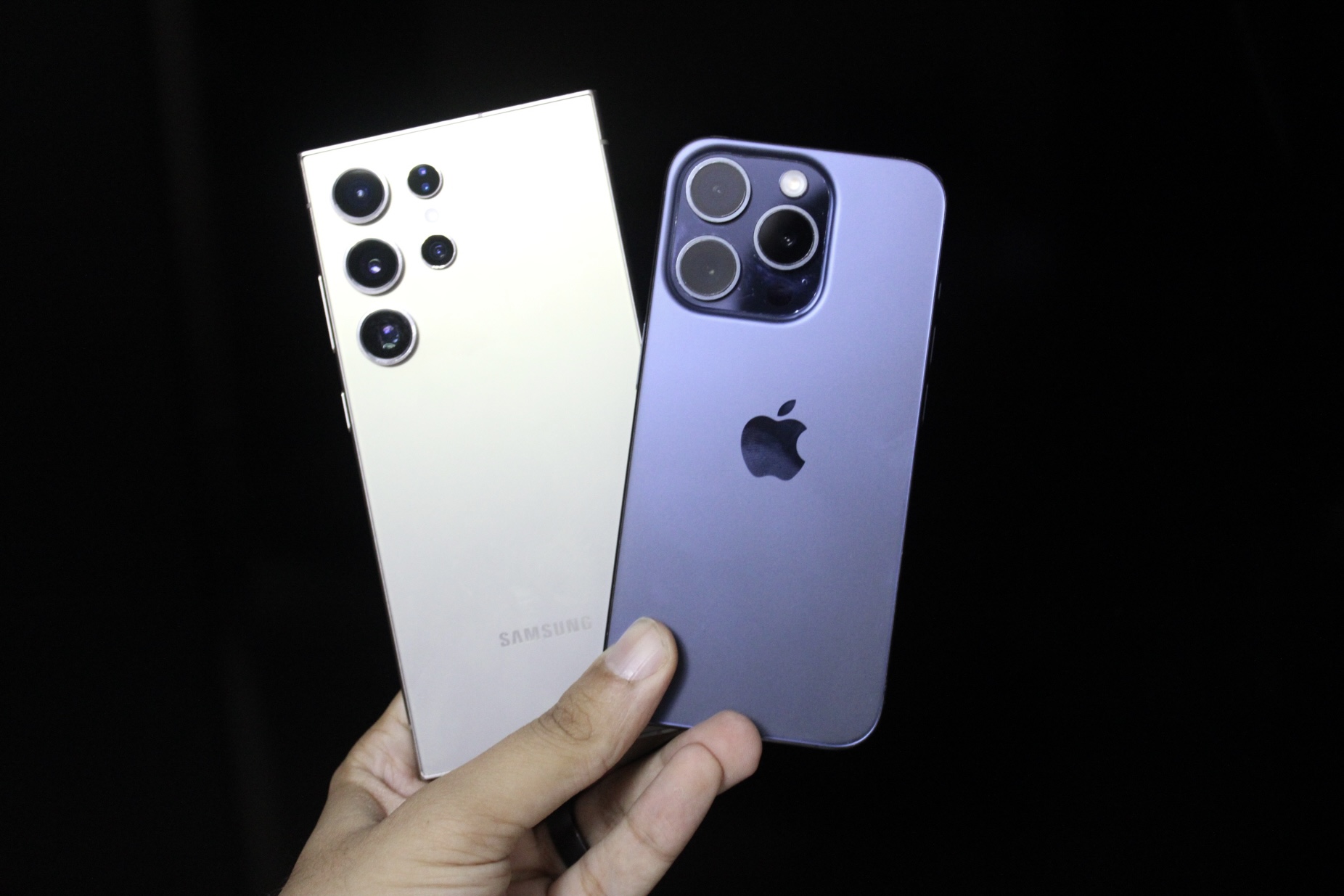The Android Vs. IPhone Debate: Gen Z's Choice

Table of Contents
Cost and Value: The Budget-Conscious Gen Z Perspective
Gen Z, known for its resourcefulness and savvy spending habits, carefully considers the cost-benefit ratio when choosing a smartphone. This generation often prioritizes value for money, making the price a crucial factor in their decision-making process.
Affordable Android Options:
Android offers a wide array of budget-friendly options without compromising on essential features. This makes it a compelling choice for many Gen Z users.
- Long battery life: Many budget Android phones boast impressive battery life, keeping up with Gen Z's demanding mobile usage.
- Large screen size: Perfect for streaming, gaming, and social media scrolling, larger screens are often a feature of affordable Android devices.
- Expandable storage: Unlike iPhones, many Android phones offer expandable storage via microSD cards, a significant advantage for those who consume a lot of media.
Examples of popular, affordable Android phones include models from brands like Samsung (A-series), Google (Pixel A-series), Motorola (G-series), and Nokia. These phones often deliver impressive performance and features at a fraction of the cost of an iPhone. The value proposition of Android is clear: you get a lot of features for your money.
The Premium Price Point of iPhones:
iPhones consistently hold a premium price point in the smartphone market. This is largely due to several factors:
- Brand recognition and status: The Apple brand carries significant weight, and owning an iPhone often carries a perceived status symbol for some Gen Z users.
- Perceived quality and build: iPhones are known for their premium build quality and sleek design, which contribute to their higher price tag.
- Strong resale value: iPhones tend to retain their value better than many Android phones, making them a potentially more cost-effective long-term investment.
However, the high initial cost can be a barrier for many Gen Z consumers. Apple addresses this with trade-in programs and financing options, making iPhones more accessible.
Operating System and User Experience: iOS vs. Android
The choice between iOS and Android often boils down to personal preference regarding operating system and user experience.
iOS Simplicity and User-Friendliness:
iOS is praised for its intuitive interface and ease of use. This is a significant draw for Gen Z users who want a seamless and straightforward mobile experience.
- Strong app ecosystem: The Apple App Store offers a curated selection of high-quality apps, many optimized for iOS.
- Seamless integration with other Apple devices: For those already in the Apple ecosystem (iPads, MacBooks), the seamless integration is a huge benefit.
- Limited customization: While appreciated by some for its simplicity, the limited customization options in iOS can be a drawback for users seeking personalization.
Android's Flexibility and Customization:
Android offers extensive customization options, allowing users to personalize their phones to a significant degree. This open-source nature is appealing to Gen Z's desire for individuality and control.
- Vast customization options: From widgets to launchers, Android allows for deep personalization, making the experience unique to the user.
- Open-source nature: Android's open-source nature leads to a wide variety of devices and software options.
- Diverse range of devices: The Android ecosystem offers a huge range of devices, catering to various budgets and preferences, unlike Apple's more limited range.
App Ecosystem and Social Media Integration:
For Gen Z, seamless social media integration is paramount. Both platforms offer access to most popular apps, but nuances exist.
App Availability on Both Platforms:
Most major social media platforms (Instagram, TikTok, Snapchat, Facebook, etc.) are available on both iOS and Android. While some minor app exclusives might exist, they are increasingly rare. However, the user interface and performance of apps can sometimes vary between platforms.
Social Media Usage and Gen Z Preferences:
Gen Z extensively uses smartphones for social media and content creation. Both platforms provide adequate tools, however, the preference often comes down to individual app usage and personal experience. The seamless integration of these apps within either ecosystem is key for Gen Z's constant connectedness.
Camera Quality and Multimedia Capabilities:
Camera quality is another significant factor for Gen Z, who are prolific content creators and sharers.
iPhone's Strong Camera Reputation:
iPhones have a well-deserved reputation for excellent camera technology, making them a popular choice for Gen Z photographers and videographers.
- Advanced camera technology: iPhones incorporate advanced image processing and AI to produce high-quality photos and videos.
- Popular features: Portrait mode, night mode, and cinematic mode are popular features among Gen Z users.
Android's Varied Camera Performance:
Android phones offer a wide range of camera capabilities, varying greatly depending on the price point and manufacturer. However, top-tier Android phones often rival and even surpass iPhones in camera performance.
- Range of capabilities: From budget phones with adequate cameras to flagship models with cutting-edge technology, Android's diversity caters to diverse needs.
- Software and AI enhancements: Many Android manufacturers leverage software and AI to enhance camera performance, often resulting in impressive results.
Conclusion: Android or iPhone for Gen Z?
The Android vs. iPhone debate for Gen Z is complex. The "best" choice depends significantly on individual preferences and needs. Cost-conscious users might gravitate towards the affordability and flexibility of Android, while those prioritizing ease of use and seamless integration might prefer iOS. Consider your budget, your desired operating system features, and your priorities regarding app usage and camera quality.
Ultimately, the Android vs. iPhone debate for Gen Z comes down to personal preference. Consider your budget, your preferred operating system features, and your priorities for app usage and camera quality before making your choice. So, which smartphone will you choose: Android or iPhone? Let us know in the comments!

Featured Posts
-
 Nhl Playoffs Barbashev Leads Knights To 4 3 Overtime Win Against Wild
May 10, 2025
Nhl Playoffs Barbashev Leads Knights To 4 3 Overtime Win Against Wild
May 10, 2025 -
 Jogsertes Es Letartoztatas Transznemu No Floridaban A Noi Mosdo Miatt
May 10, 2025
Jogsertes Es Letartoztatas Transznemu No Floridaban A Noi Mosdo Miatt
May 10, 2025 -
 Red Wings Playoff Hopes Fade After Vegas Loss
May 10, 2025
Red Wings Playoff Hopes Fade After Vegas Loss
May 10, 2025 -
 Exploring The Themes In Wynne And Joanna All At Sea
May 10, 2025
Exploring The Themes In Wynne And Joanna All At Sea
May 10, 2025 -
 Wynne And Joanna All At Sea Book Review And Discussion
May 10, 2025
Wynne And Joanna All At Sea Book Review And Discussion
May 10, 2025
